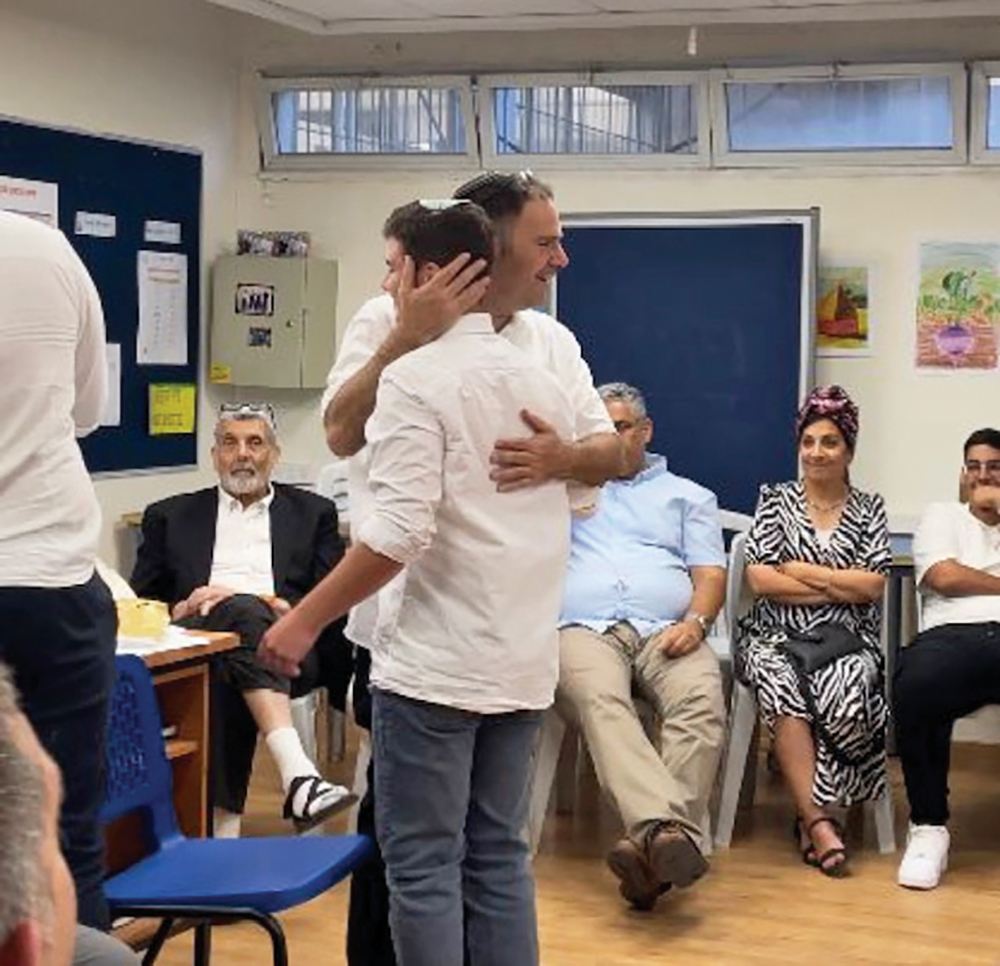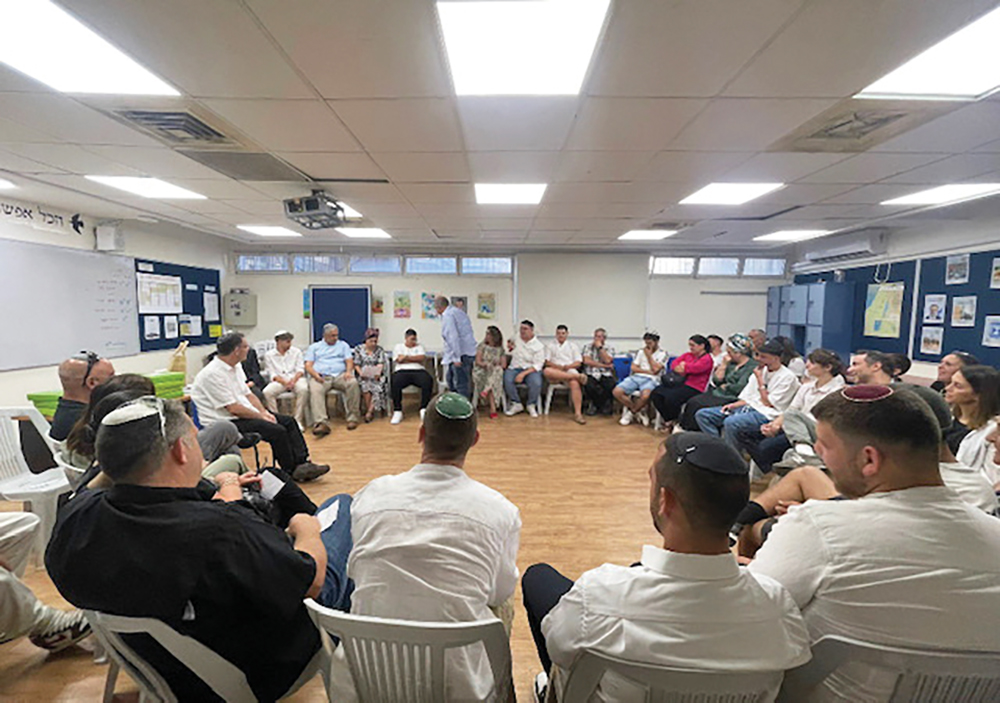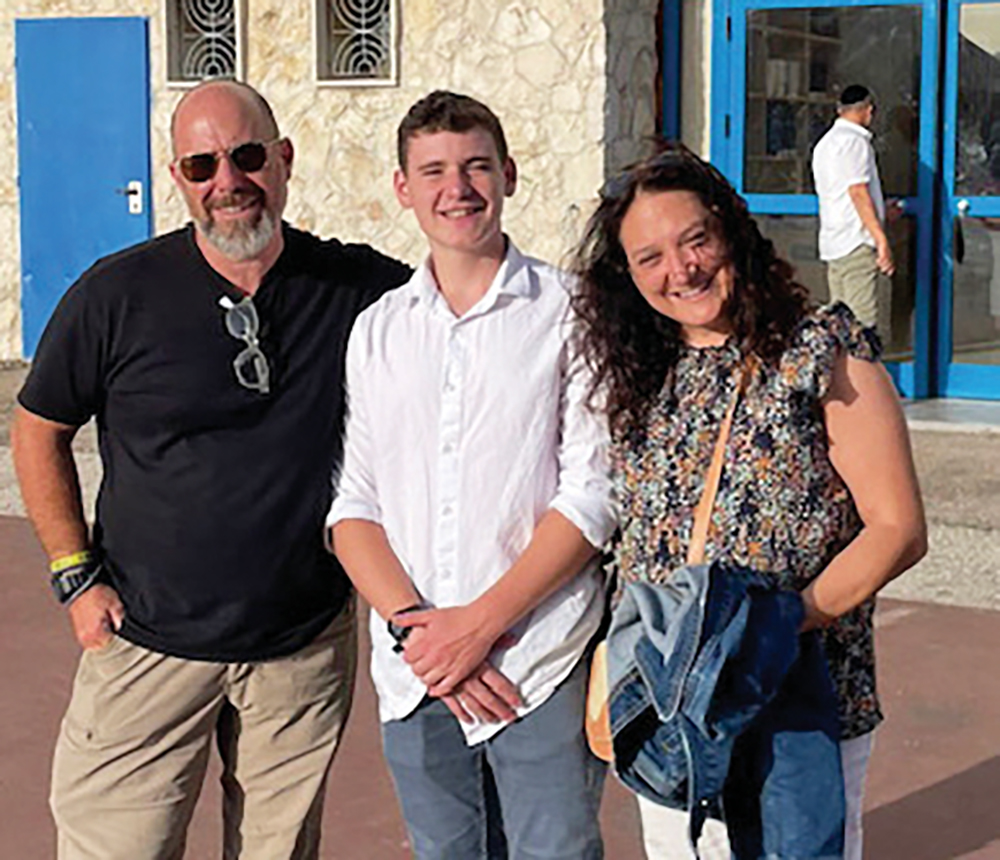
My youngest son, Judah, graduated from high school last night. It felt momentous not just because he was my golden boy baby who turned into a maniac toddler, then a nightmare youngster and later a reckless middle schooler, but because he finally transformed into a calm, caring, studious, disciplined young adult in high school—after we moved to Israel.
All of us moms with graduates have a lot to be proud of. Several years of rigorous study, exams and social interactions. My son grew up in Teaneck and attended Noam, then Shefa. When he applied to Frisch in eighth grade, we were living in Jerusalem on what we thought was a one-year sabbatical. He was interviewed by a Frisch rabbi in the Orient Hotel lobby and got accepted, to our relief.
As the year progressed, Judah and his older sisters begged us to stay in Israel. We hadn’t planned on it, assuming our teenagers wouldn’t want to give up the good life in Teaneck. We were shocked. Our kids made it clear they preferred what Israel had to offer over the high pressures of social and academic life back home. I used to joke to my non-Jewish friends that the pressure in American Modern Orthodox day schools was not to get high, but to get into high honors. The emphasis on individual academic success in day school is so strong that when my niece graduated from SAR, her social media was flooded with friends’ college announcements. This year, despite the national antisemitic turmoil on campuses, students weren’t deterred from aiming for the elusive Ivy League acceptance.

Judah attended an all-boys religious Zionist school called Himmelfarb, similar to TABC. It’s been around for over 75 years, and its graduates often get recruited into elite combat units in Tzahal. About 30% of these top units are made up of Dati Leumi youngsters, even though they’re only 10% of the Israeli population.
When he first enrolled, we were still in the American mindset where school is everything. Judah’s Hebrew fluency was made up mostly of biblical terms sprinkled in with some curse words and the occasional “slicha” and “todah.” The principal told us to forget about his academic work and focus on his Hebrew and his ability to bond with the class. Of course, we wanted him to fit in, but we couldn’t ignore his schoolwork. After two years and several tutors, we gave up on micromanaging his academics and let him lead the way.
As the years went by his friend group grew, he got a part-time job at a local restaurant, volunteered with Mada, and took honors-level courses (he was still American, after all).
We attended his graduation, which was as formal as a day school siddur play, and with as much nervous enthusiasm as kindergarteners on their big day. We should’ve prepared ourselves for the relaxed vibe, as we were invited by text, but our American sensibility got the best of us. We still had high expectations, but soon we saw no dress code, no reserved seats, no cap, no gown, and sadly, no pomp and circumstance. In contrast, my niece who graduated from SAR had a special dress under her gown, bedazzled her mortarboard with her college insignia, and had Rep. Richie Torres as a keynote speaker.
What we did experience was an incredibly emotional send-off from Judah’s homeroom teacher. Parents and graduates sat in a circle in his classroom, and each parent had to speak about their child. Some gave mini dvar Torahs with accompanying small gifts. One mom gave her son a keychain, saying he held the key to every door (we thought she was giving him a car!). Another mom gave an Allen wrench, saying he now has all the tools he needs (in actuality, the only tool you’ll ever need in Israel is an Allen wrench since almost everything is from IKEA).
I was nervous as my turn approached. My husband is even less of a public speaker than I am, so I was nominated to speak. I didn’t so much as have a chapstick to give Judah, but I mustered the courage to speak, albeit in English. I was beaming but so emotional my voice cracked. I spoke about my pride in my son and my gratitude towards his classmates. From day one, they fully accepted him and he bonded with his grade and the community. Yes, he was a top student but more importantly he was an integral member of the class. His resilience, born from the immigrant experience, made him the strongest young adult I knew.

Looking at these students, just turning 18 and ready to face war, I realized this is the experience of every 18-year-old senior boy in Israel. Years ago, I would’ve thought it was like a send-off to camp. Now, it’s a send-off to the front lines. Judah will learn to become an independent man on the battlefield, not the quad. He will set up camp in the desert, not an encampment on campus. He will prepare for rigorous physical and mental tests in an attempt to make it into an elite commando unit, not for rush week at a frat house. He will endure long hours in extreme conditions during guard duty, without a phone or a friend.
My only comfort is knowing he will have his unit, his boys—these same boys who embraced him as a friend and now as a comrade. They will watch out for him and encourage him because, in Israel, it’s not about the individual but about the group, the community and the nation’s success.
The graduation ended with Judah’s teacher pouring each student a glass of wine and giving them a mini book of Tehillim, along with their diploma. He toasted the boys with an emotional d’var Torah, a hug, and a l’chaim. To life.
Shira Grunstein made accidental aliya in 2020 from Teaneck.The Grunsteins are living proof that you can successfully make aliya with teens and you can live without Starbucks. If you are considering moving to Israel with teens and need a little chizuk, contact Shira at [email protected]









